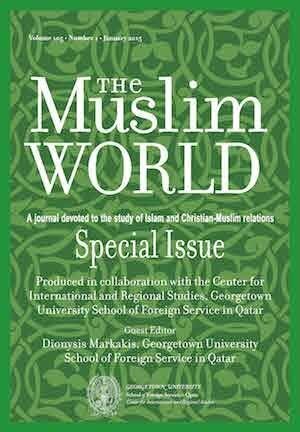The Muslim World: The State and Innovation in the Gulf

To cite this publication: Dionysis Markakis, guest ed., “The State and Innovation in the Persian Gulf,” CIRS Special Issue of The Muslim World 105, no. 1 (January 2015).
Over the last few decades, individual member-states of the Gulf Cooperation Council (GCC) have engaged in an endeavor of unprecedented scale. Reliant on their abundant but ultimately finite hydrocarbon reserves, states such as Qatar, Oman and the United Arab Emirates (UAE) have sought to diversify their economies, initiating transitions to more sustainable “knowledge-based” economies. Placing an emphasis on fostering higher education, entrepreneurship, research and design, information and communications technology, and similarly progressive sectors, the fundamental objective is to create indigenous, sustainable, and enduring economies. The articles in this special issue of The Muslim World journal emerged out of a two-year research initiative undertaken by the Center for International and Regional Studies of Georgetown University’s School of Foreign Service in Qatar. They explore what “knowledge” constitutes, its myriad relationships to the economic system, and the means by which “knowledge-based economies” have been pursued in the context of the Persian Gulf. Across the individual countries and the region as a whole, the authors examine the achievements and opportunities, challenges and failures, faced in this endeavor.